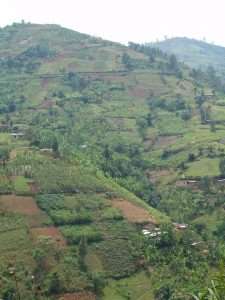Dystopia, that place no-one would wish to be; a place of total alienation; a place where normal human interaction has ceased to be; a place of constant fear and anxiety; a place of insecurity, pessimism, nihilism.
Writers’ preferred place for dystopia is an urban jungle, a place of concrete and steel desolation. There has been war or epidemic or unforeseen catastrophe and people are now surviving in a wasteland where sudden violence or life-threatening want are constant threats. The social order that had provided for civilised life has disappeared, in its place has come a social Darwinian anarchy where strength or cunning have become the prerequisites for survival. There is no law, no recourse to the processes of justice. One can strive to rebuild a semblance of an ordered and sustainable life, but peaceful ways will constantly be in danger of destruction. A dystopian society is no society at all, it is the antithesis of society, it is a rejection of the ways of co-operation and mutuality. One of the worst features of dystopia is that there can be no possibility of optimism, what cause can there be for feeling sanguine when existence itself has been reduced to a precarious fragility? Dystopian novels are bleak because, short of people being able to escape to another world, they can only be bleak. Were there a remedy for the situation of the society, it would not be dystopian.
Perhaps pure dystopia does not exist, perhaps, mercifully, the catastrophe that might create a post-apocalyptic scenario has never arisen. Yet there are places that approximate to dystopia. While the media focuses upon the many failings of Donald Trump and Vladimir Putin, there are hundreds of millions who would seize any opportunity to live in the most Trumpian or authoritarian of societies. Entirely absent from the television news, almost entirely absent even from print media, there are African states which approximate to Dystopia at its most nightmarish. There has been no need of an apocalyptic disaster, instead exploitative colonialism followed by the dictatorial rule of kleptomaniacs has created situations unimaginable for the average European. Natural resources are taken by corporations accountable to no-one, payment for them going into the pockets of the ruling clique. Corruption has become endemic, civil society has collapsed. Attempts at opposition, at organisation, at the mobilising of communities meet with bloody suppression.
In most situations, there is still the facade of a state, for the presidents who have ruled for thirty or more years regard themselves as rightful participants in international gatherings. But there are places where the rule of law has disappeared, where people are the constant prey of warlords. They are places where to try to grow crops or to build a home invites extortion, robbery or eviction by those armed with automatic rifles who arrive in pickups and laugh at the fear they instil and the power they exert. No-one is interested in the news from those places.
Being progressive demands more than criticizing Donald Trump.
